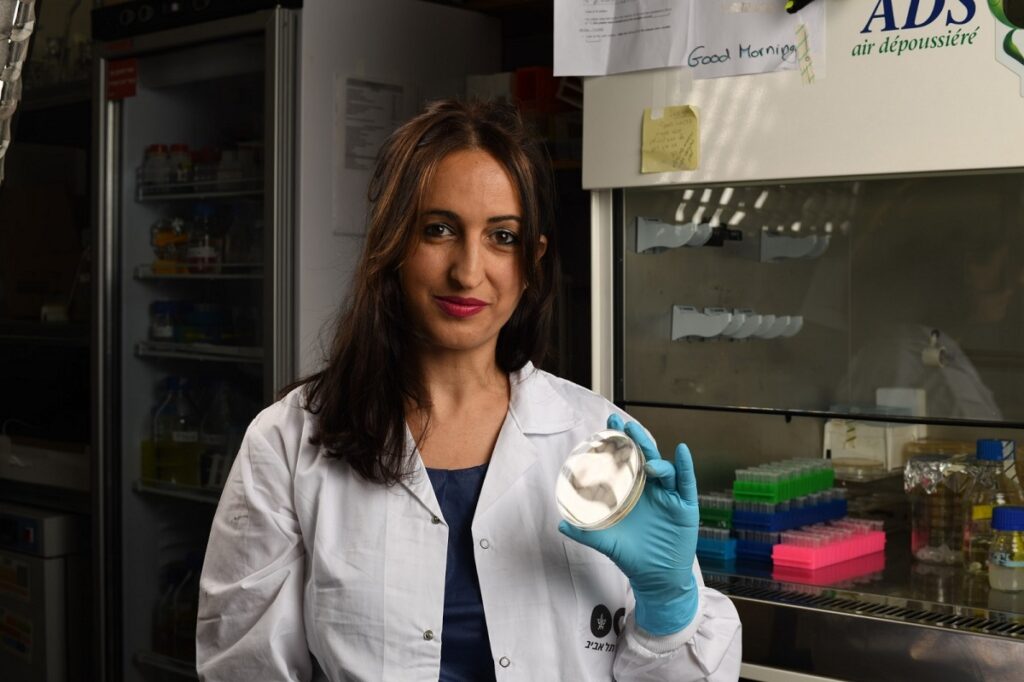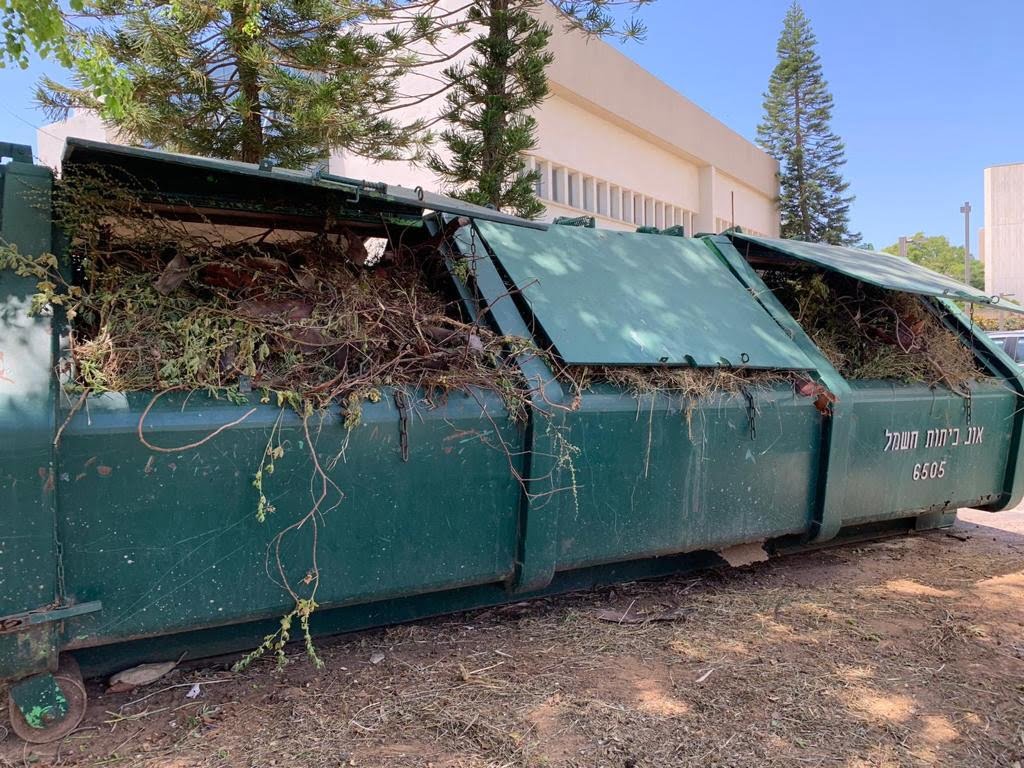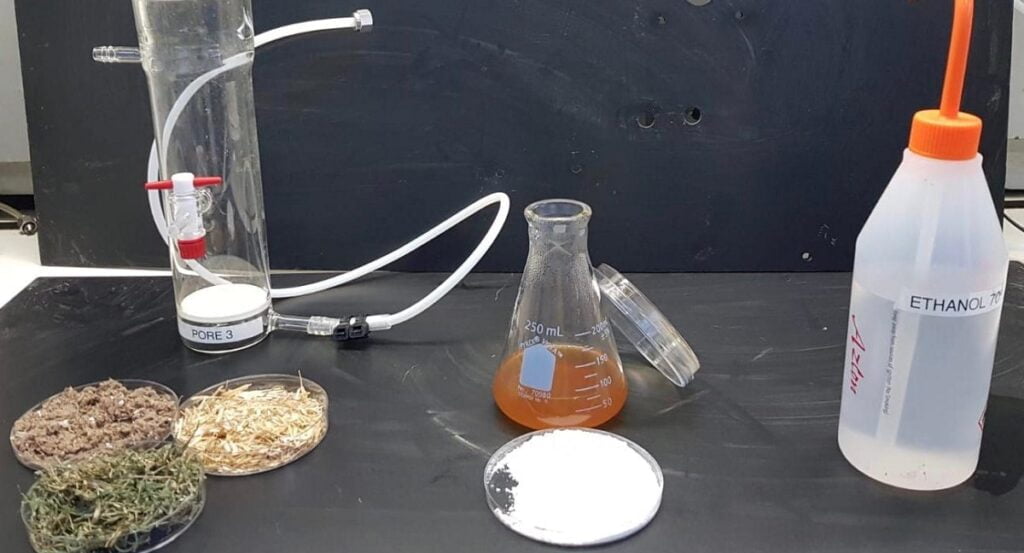As the global coronavirus health crisis continues to grip the world, the World Health Organization has recommended that individuals regularly and thoroughly clean their hands with soap and water or an alcohol-based hand rub, as part of their hand hygiene.
The ongoing pandemic has led to a surge in demand for alcohol (ethanol) based disinfectants, such as alcogel and septol, in the form of hand sanitizer.
Israel, for its part, has no local ethanol production and is completely dependent on the annual import of tens of thousands tons of ethanol. As the crisis continues, concerns have emerged of shortages of hand sanitizer in Israel as a result of quarantine conditions in other states, global demand, and import limitations.

For the first time, a groundbreaking development from Tel Aviv University researchers enables the local production of ethanol in Israel, from plant and paper waste, in a cost-effective and environmentally-friendly way.
The process, which uses a novel lignin degradation method could significantly cut back on production costs and lead to a decrease in the use of edible plant sources, help protect the environment, reduce the use of various pollutants, and greenhouse gas emissions, due to environmental-friendly waste processing, Tel Aviv University (TAU) said in a statement.
Lignin is a complex macromolecule important for the formation of cell walls of plants. It exists in all types of agricultural waste.
SEE ALSO: Bye Bye Trash: Israeli Company Pilots Breakthrough Waste Conversion Solution in US
Professor Hadas Mamane, head of Tel Aviv University’s environmental engineering program, calls the process a “game-changer” in the way that ethanol would be manufactured in Israel and remote countries where the production of ethanol is difficult.
This method was developed as part of the joint research of Prof. Mamane from the TAU School of Mechanical Engineering, Prof. Yoram Gerchman from the Oranim Academic College – Haifa University, and TAU PhD students Roi Perez, Yan Rosen and Barak Halpern.
The team at TAU has been working on the process of recycling waste and converting it into ethanol for the past five years, Prof. Mamane tells NoCamels, but the development of local ethanol production has become more significant with the prevalence of COVID-19.

“Our country has only relied on ethanol that is coming from outside of Israel. When the coronavirus issue started, we realized how much of a problem this dependence on the import of ethanol was, because sometimes the borders could be closed. So we started to dig into this issue more,” she tells NoCamels.
Sign up for our free weekly newsletter
SubscribeEthanol has mainly been generated from sugar cane and corn, in what Prof. Mamane calls a “first-generation” process because it is directly taking the food to generate fuel.
In Israel, there is currently no ethanol industry. Prof. Mamane says it is because as a small country, Israel does not have the water, the land or the capacity to grow huge fields of corn or sugar cane, like in the US or Brazil.
But the generation of bioethanol from waste might prove to be the answer to this problem. The production ethanol from waste is a “second-generation” process which is much less “problematic” she says because ethanol production from sugar cane and corn requires land water fertilizers and enhances monoculture planting that has many environmental issues
The joint TAU and University of Haifa teams have developed an effective pre-treatment method that almost doesn’t pollute, doesn’t require the use of hazardous substances, and ends up being less costly and complex procedure.

“We were able to use a low dose ozonation [chemical water treatment technique based on the infusion of ozone into water] to achieve efficient ethanol production,” she says.
This type of ethanol production is easy to setup and comes at a much lower cost than the more well-known methods of creating it, Prof. Mamane explains.
The TAU team will soon begin a pilot program using agricultural waste to create ethanol at The Yehuda Naftali Botanic Garden at Tel Aviv University. The garden will give the team their tree trimmings, grass, plants, and other waste. Prof. Mamane says. The pilot program will begin in about two months.
Prof. Mamane says the project will take about two years to complete, similar to the amount of time she predicts it could take to commercialize the process.

This isn’t the only study or method currently in development to produce ethanol from waste. In a separate study conducted in Prof. Yoram Gerchman’s laboratory as part of a biology project led by his student Maya Maliniak, researchers from the University of Haifa also examined the possibility of producing ethanol from watermelon pulp. The study found that the fruit residue can be used to produce ethanol, an alternative biological fuel for vehicles, which is also the main ingredient in alcohol.
Prof. Mamane says these types of studies have “so much potential because of the abundance of waste currently produced in Israel which has no use. Currently, some 620,000 tons of plant and similar waste, and 35,000 tons of paper waste, waste that requires management and resources, are produced annually in the country.
Related posts

Israeli Medical Technologies That Could Change The World

Harnessing Our Own Bodies For Side Effect-Free Weight Loss

Missing Protein Could Unlock Treatment For Aggressive Lung Cancer




Facebook comments